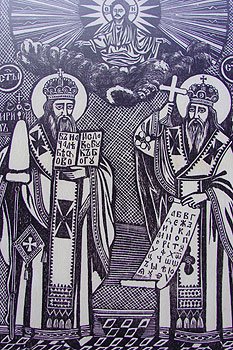
© Photo: Veneta Pavlova
The population of Bulgaria and especially the people with low socio-economic status are among the most vulnerable groups in the EU when it comes to climate change. There are a few reasons for this. There is a large share of poor..
Navigation conditions along the River Danube will be improved with the EUR 10 million European project DISMAR , the Bulgarian news agency BTA reports, quoting Ivelin Zanev, CEO of the Executive Agency "Exploration and Maintenance of the..
The Patriarchal Election Church Council has been convened on 30 June to elect a Patriarch of the Bulgarian Orthodox church and Metropolitan of the Sofia diocese. The Bulgarian Patriarch and Sofia Metropolitan Neophyte passed away on 13 March leaving..
The population of Bulgaria and especially the people with low socio-economic status are among the most vulnerable groups in the EU when..

+359 2 9336 661
